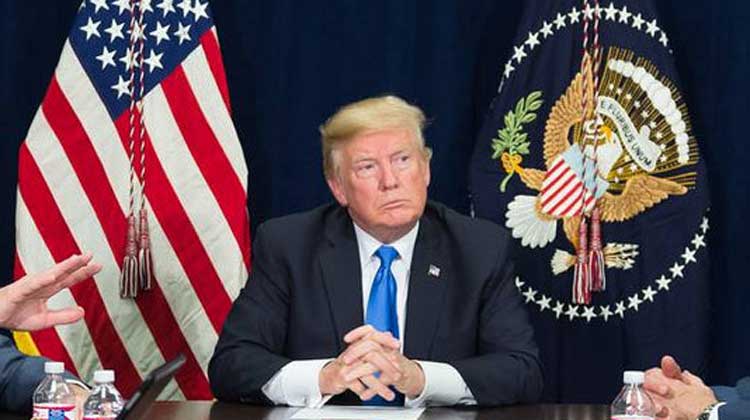 The Trump administration Jan. 17 announced a one-year extension to Clinton-era Executive Order 12947 targeting terrorists intent on disrupting peace in the Middle East.
The Trump administration Jan. 17 announced a one-year extension to Clinton-era Executive Order 12947 targeting terrorists intent on disrupting peace in the Middle East.
“These terrorist activities continue to threaten the Middle East peace process and to pose an unusual and extraordinary threat to the national security, foreign policy, and economy of the United States,” President Donald Trump said in Wednesday’s statement. The 23-year-old order specifically targeted individuals conducting transactions with terrorists.
“I William J. Clinton, president of the United States of America, find that grave acts of violence committed by foreign terrorists that disrupt the Middle East peace process constitute an unusual and extraordinary threat to the national security, foreign policy, and economy of the United States, and hereby declare a national emergency to deal with that threat,” Clinton wrote in the original order.
Groups targeted in the order were the Democratic Front for the Liberation of Palestine, Hammas, Hezbollah, the Abu Nidal Organization, and several others.
“[A]ny transaction or dealing by United States persons or within the United States in property or interests in property of the persons designated in or pursuant to this order is prohibited, including the making or receiving of any contribution of funds, goods, or services to or for the benefit of such persons,” the order read.
One notable conviction related to the executive order was that of Ahmed Omar Abu Ali, who was found guilty of conspiracy with Al-Qaida and plotting to kill President George W. Bush. Originally sentenced to 30 years, on appeal he was re-sentenced to life in prison.
A more recent case was that of Rasmea Odeh, who had been convicted of 1970s bombings in Jerusalem that killed two people. She did not tell U.S. officials of her criminal past when applying for a visa in 1994 or U.S. citizenship in 2004. She was ultimately deported to Jordan in September 2017.
© 2018 Homeland411.com